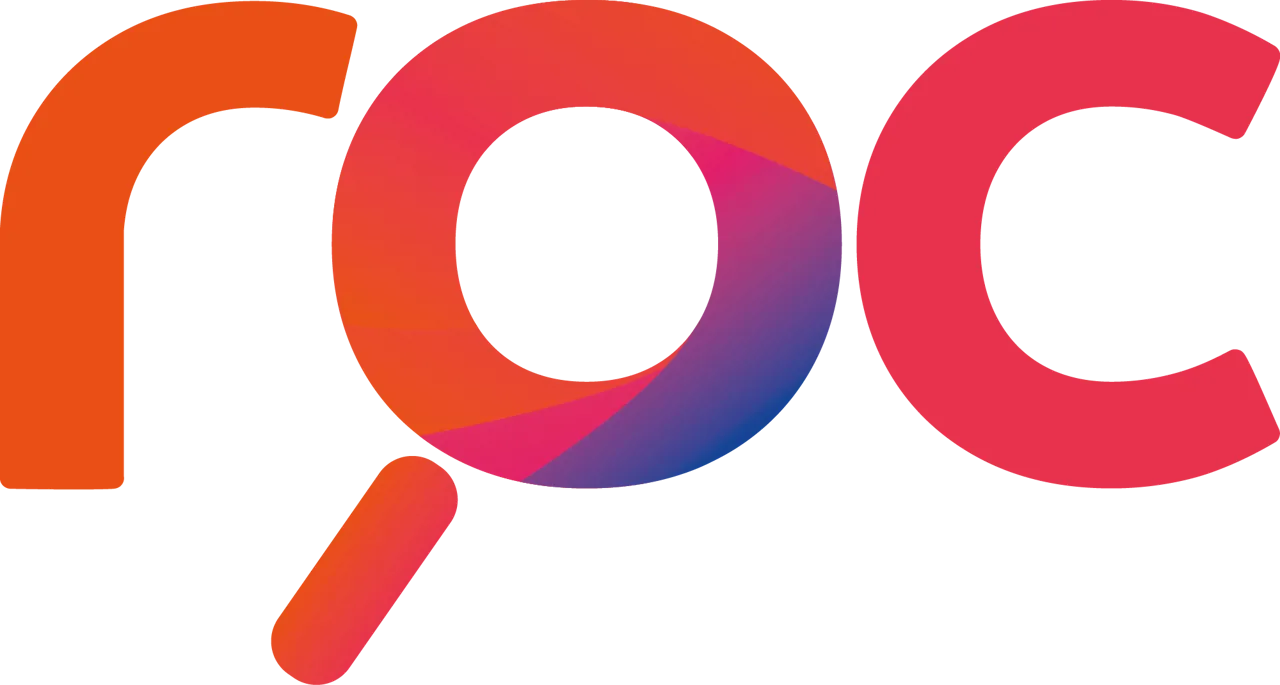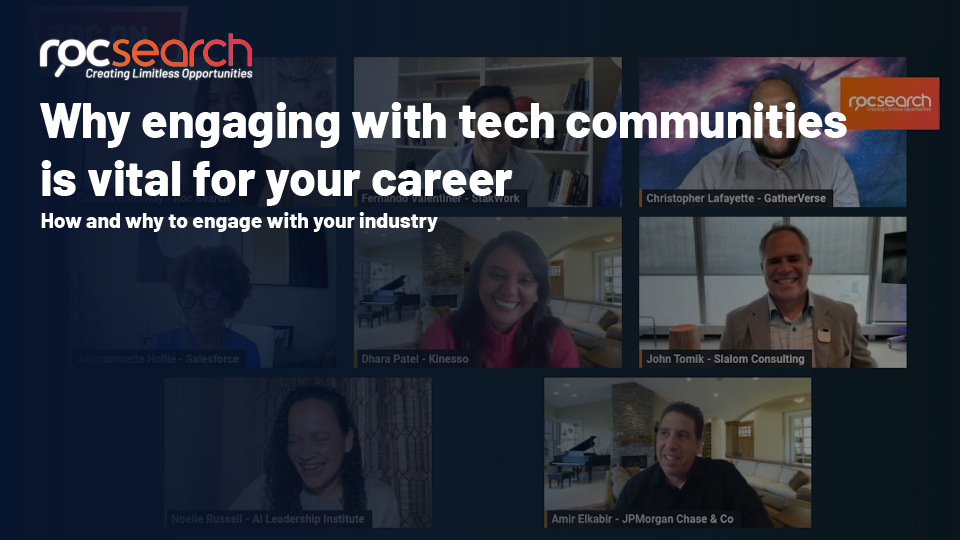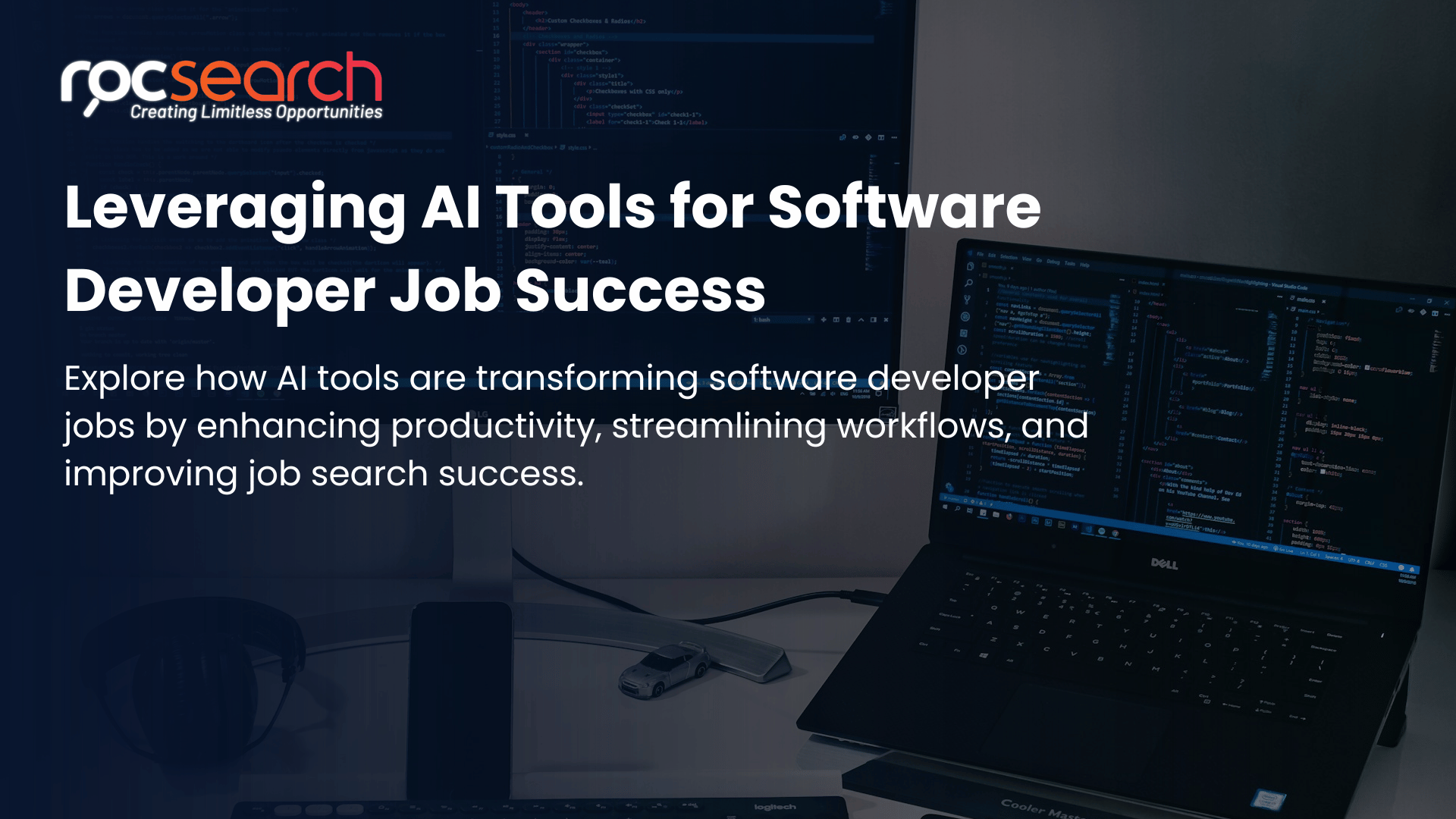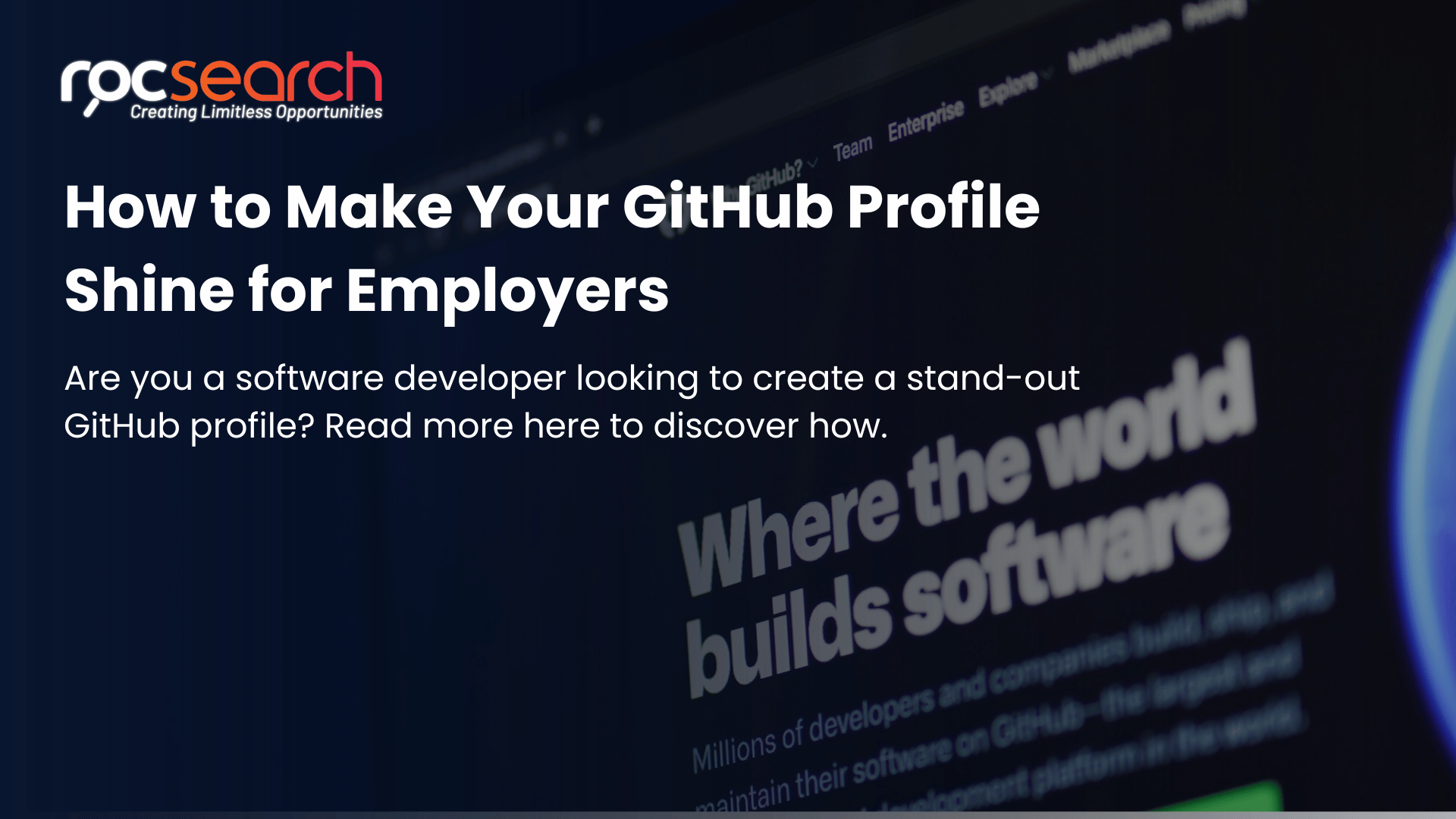How to Master the Technical Interview: A Guide for Software Developers
31 Jan, 20244 minsAlthough technical interviews can be daunting, with coding processes and onsite assessments,...

Although technical interviews can be daunting, with coding processes and onsite assessments, preparing for what to expect and refreshing your knowledge makes the process a whole lot easier. Knowing what skills and assets hiring managers are looking for means you can present yourself in the most effective way. So, it is no secret that fostering pre-prepared knowledge, practice, and expectations is the key to landing your dream software developer role.
In this guide, we will discuss how you can perfect your technical interview as a software developer, providing advice on what a technical interview entails, what to expect and how to prepare to ensure you are a stand-out candidate.
What is a Technical Interview?
First, let us answer the question of ‘what is a technical interview?’ and why it is important:
A technical interview is a tailored process that tests a candidate's coding skills, problem-solving abilities, and knowledge of software developer skills. Technical interviews are slightly different to the norm as they usually involve challenges and assignments, resembling an exam-like format rather than a typical question-and-answer interview.
The format of a technical interview can vary depending on the company, ranging from written tests to coding challenges and whiteboard interviews. Candidates are expected to demonstrate their soft and hard skills, demonstrating logical problem-solving, coding challenges, and the accumulation of their thought processes when solving problems.
Technical interviews are essential in the tech industry. During these interviews, hiring managers can assess a candidate's capability to perform the specialist requirements of the role and evaluate whether the candidate is a good fit and aligns with company culture, values, and goals.
Now that we have answered the fundamental question of ‘what is a technical interview?’ and uncovered its importance, let’s delve into the crucial steps to mastering the technical software developer interview:
1. Go Over the Basics - Practice Coding Challenges
Before any important interview, mastering the basics will be the first crucial step in landing a role as a software developer. Below are the most essential tips for pre-perfecting the fundamental processes involved in software developer roles.
Pick one Programming Language
Becoming an expert in one fundamental programming language, such as Java, Python, and C++, is essential. Usually, during technical interview assessments such as coding challenges, companies are flexible on which programming language you can use and typically leave the choice to you. Opting for a programming language you know inside out is the most beneficial option, as it avoids unnecessary mistakes and showcases your best coding and programming skills to the hiring manager.
Understand the Fundamentals
Understanding the fundamentals of software development is essential. During the interview process, interviewers are likely to ask questions about what methods they would use to deconstruct complex issues. Before a technical interview, it is important to refresh your memory on the most essential computer science (CS) fundamentals.
As you probably know, fundamentals can fall under several categories:
- Hardware - Fundamental knowledge of hardware components can include central processing, storage, and memory and input units. Hardware architecture models can consist of designs such as Harvard Architecture - where storage and signal pathways are separated for optimised performance.
- Software - As a software developer, you must have knowledge of software components, such as operating systems, assemblers and compilers. Pre-prepared knowledge of software programming languages such as Python and Java is essential, as well as low-level machine and assembly languages.
- Data Structures - Substantial knowledge of data structures is crucial in gaining the attention of hiring managers. Data structures include Array, Tree, Stack, Hash table and Graph.
- Algorithms—Software developers must be aware of algorithm categories, such as graph and sorting categories, and design techniques like brute force and dynamic programming, which are used to break down issues and provide solutions.
Smart Coding Practice
As a software developer commencing their next job search, it is essential to consistently practice smart coding and programming languages, even before a technical interview is scheduled. You should aim to practice for at least four weeks before the interview and solve at least 1-2 interview practice questions regarding programming per day. It is helpful to set strict deadlines so you are used to working under tight time constraints, aiming to solve a coding problem within 30-45 minutes.
2. Prepare for the Technical Interview Format
Being aware of the technical interview format is crucial. Below are the key stages of a technical software developer interview. However, it is important to remember that format varies from company to company.
1. Online Interview
If a hiring manager is impressed by your resume, they will call you for a first-stage interview, usually done remotely via video call. The purpose of the first stage interview is for the hiring manager to learn more about you regarding your education, software developer skills, experience in the field, and career aspirations.
During this stage, it is essential to demonstrate your passions as a software developer, why you are interested in working for the company, your enthusiasm, and your excellent communication skills, as well as explain how you align with the company goals, values, and projects.
2. Coding Assessment
The next stage is usually the coding assessment challenge, where candidates are required to complete a coding task within a specific time frame, demonstrating their ability to write clear, efficient code and solve issues methodically. You should expect coding assessments to be either remote or onsite. Some companies may give you a remote coding challenge that takes 48 hours, whereas others may require a real-time, onsite assessment.
Before a coding assessment, you must be sure you fully understand the task's requirements. Planning your code and time frames will massively help the process. During a coding interview, it is essential for you to communicate with the interviewer, discussing what you are doing and why you are doing it. Communicating with the interviewer demonstrates and explains your coding, problem-solving, collaborative and communication skills, which they will seek.
According to a LinkedIn report, 89% of hirers said they think skill assessments are crucial for assessing candidates for jobs that require knowledge of hard skills, and 83% agree they expect skill assessments to continue to impact future hiring processes.
Coding assessments are here to stay in the world of tech and engineering, so it is essential to master the process sooner than later.
3. Written Tests
Written tests are an alternative or additional assessment to timed coding challenges. They primarily demonstrate a candidate's ability to communicate technical concepts, coding knowledge, and problem-solving skills.
A written assessment could entail writing pieces of code and explaining the logical thought processes behind them or writing answers to a series of technical questions. This assessment aims to showcase your understanding of coding concepts and technical ideas in a concise format, demonstrating your organisation and knowledge within the software developer industry.
4. Whiteboard Interview
Usually, depending on the company, if you have been successful in your initial remote assessments, the whiteboard interview comes next. In short, the whiteboard interview assesses technical and non-technical skills on a whiteboard, where similar features can also be facilitated via Teams or Zoom.
The whiteboard interview is a live assessment of coding, problem-solving, presentation and technical skills. Candidates need to demonstrate knowledge of algorithms, programming and data structures. Around 58% of tech companies use live coding interviews to evaluate candidates’ coding skills and problem-solving capabilities in real-time, so knowing what to expect and performing well in this stage is essential to the hiring process.
In preparation for a whiteboard interview, candidates must ask questions to ensure they understand the task's requirements. As we can appreciate, whiteboard interviews are a nerve-wracking process. Still, speaking as clearly and precisely as possible is essential when talking through the thought processes of writing code and generating solutions. Explaining thought processes as if you are part of the team is crucial in demonstrating communication and collaborative skills.
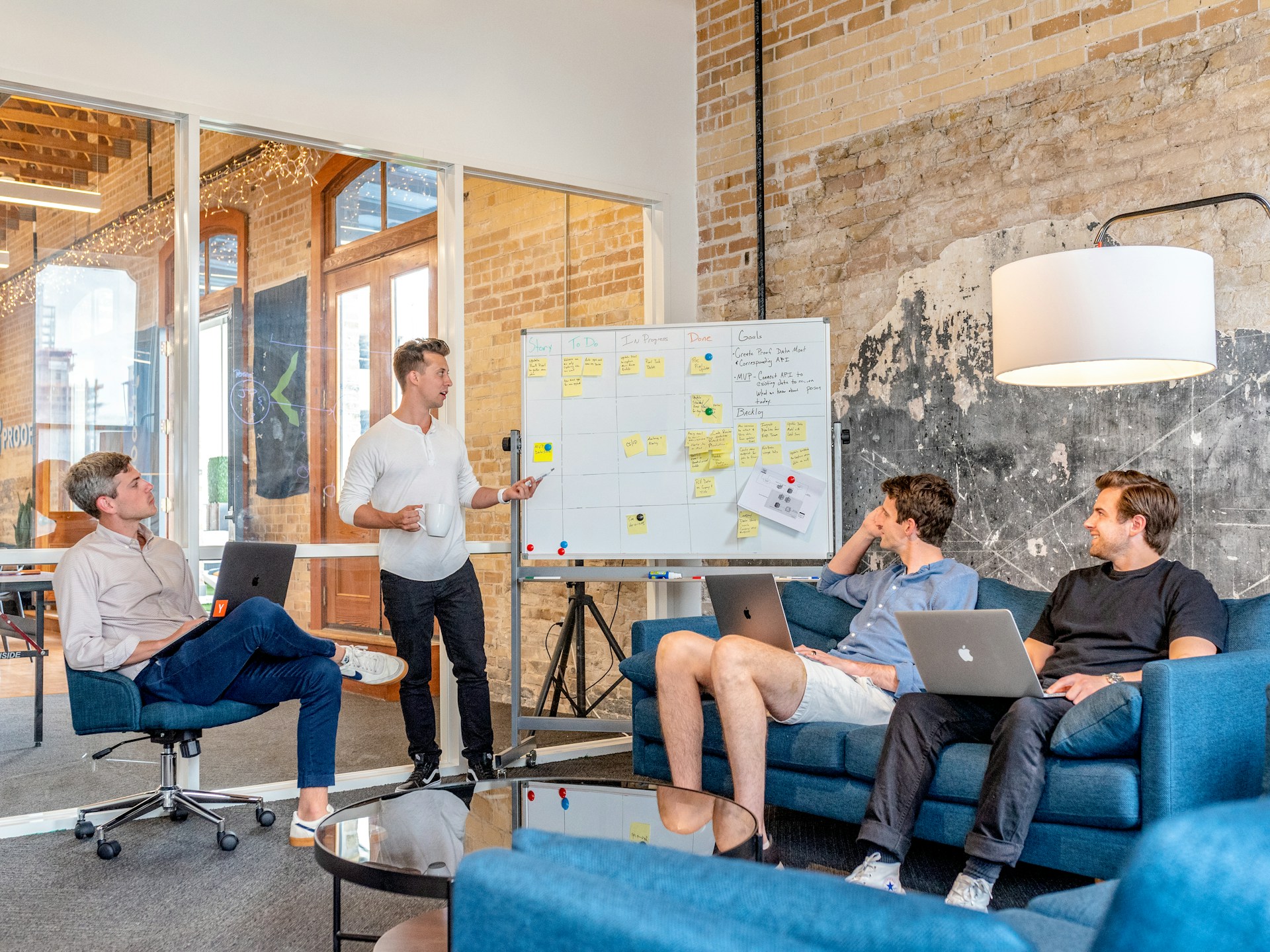
What questions will you be asked?
Take a look below to learn the most crucial technical interview questions you may be asked as a software developer:
- “What’s your proudest accomplishment?”
- “Give me an example of how you solved a difficult problem?”
- “Tell me about a time you made a mistake at work?”
- “Tell me what you’re passionate about and why?”
- “Give me an example of when you showed leadership skills and worked as part of a team”.
To master technical interview questions such as these, you must practice mock interviews and prepare answers and real-life examples for several possible questions, which can be applied to most questions, even ones you have not technically prepared for. You must keep answers relative to the software developer role, showcasing your skills, enthusiasm and passion for the industry.
According to recent research, around 63% of organisations ask competency-based questions to assess candidates’ skills and abilities, so preparing examples of times you put essential skills into practice is vital.
1. Demonstrate Essential Skills
During all stages of a technical interview, it is essential for you as a software developer to showcase both hard and soft skills to appear as the perfect fit for the role. Whether that involves demonstrating communication and collaborative skills within the whiteboard interview or programming expertise in the coding assessment, all are essential.
Below are a few of the many hard and soft skills you will need to demonstrate as a software developer:
1. Hard Skills
- Programming and Coding - Competence in programming languages such as Java, Python, and C++ is essential in the role of a software developer.
- Testing - Using code to write effective testing units is a crucial skill to demonstrate to hiring managers.
- Debugging - Identifying and resolving issues within a codebase is a vital skill that must be actively showcased throughout the software developer interview process.
2. Soft Skills
- Problem-Solving - Hiring managers will actively look for examples of problem-solving skills when detecting and providing solutions for issues within the code base.
- Collaboration - Collaboration and teamwork are essential parts of a software developer's role in meeting project goals, so it is essential to showcase such skills to hiring managers during the interview process.
- Communication - During the whiteboard interview, hiring managers will assess whether you can present technical information to stakeholders.
To learn more about the essential skills a software developer must possess, discover our insightful guide - The Essential Skills Every Software Developer Should Have in 2024
4. Present Thought Processes and Solutions
As discussed earlier in the guide, talking through your logical thought processes is essential. Communicating why and how you solve code issues is vital in demonstrating your collaborative, teamwork and problem-solving skills to the hiring manager. Discussing your thoughts with the hiring manager as if they are already a part of your team is critical, allowing the interviewer to envisage how you would work well in a team within their organisation.
For example, during the whiteboard interview process, the interview should be approached as a conversation, not just an observation. This will encourage you to ask any necessary questions before the interview starts, help you explain technical concepts and solutions, and respond to feedback comfortably and effectively.
To break it down, here are the key benefits of presenting thought processes and solutions during the technical interview:
- Demonstrates problem-solving skills - By presenting your thought process, you demonstrate your ability to dissect challenges whilst showcasing different potential approaches and solutions.
- Showcases understanding of core concepts - When discussing thought processes, candidates can naturally demonstrate understanding of core concepts, such as programming fundamentals.
- Highlights communication skills - By verbalising your thought processes, you can demonstrate your ability to explain complex concepts to colleagues in a way that is easily understandable to those who do not have a technical background.
5. Ask Questions
A technical interview is a two-way process, where it is just as important for you to ask questions, to get a sense of how the business works, their goals and values, and asses whether you could envisage working within the organisation.
Asking unique questions at the end of each interview process is an excellent way to stand out to the hiring manager, demonstrating your interest in working for the company to the hiring manager.
Stand-out technical interview questions to ask the hiring manager include:
- “What do you enjoy most about working here?”
- “Does your company offer opportunities for career development?”
- “Can you describe the process of how you test your code?”
- “What framework tools does your company use?”
- “Is there anything on my CV/resume you’re not sure about?” - This question is excellent as it brings the opportunity to address any concerns the hiring manager may have about your CV/resume at an early stage, increasing the likelihood you will be considered for the role.
Key Takeaways on Mastering the Technical Interview
This guide has delved into various stages of the technical interview, from online interviews and coding assessments to written tests and whiteboard interviews. Each step demands a unique set of skills and strategies, emphasising the need for candidates to adapt and showcase their expertise in different formats.
Key recommendations include returning to the basics, practising coding challenges regularly, and mastering one programming language to a level of expertise. Understanding the fundamentals of hardware, software, data structures, and algorithms is crucial, as is engaging in smart coding practices in the weeks leading up to the interview.
Moreover, the importance of demonstrating hard and soft skills cannot be overstated. From programming proficiency and debugging capabilities to problem-solving, collaboration, and effective communication, a successful candidate must exhibit a well-rounded skill set.
Presenting logical thought processes and solutions during the interview, especially in formats like the whiteboard interview, is vital. Transforming the interview into a conversation and actively engaging with the interviewer showcases technical skills and highlights the candidate's potential as a valuable team member.
Recognising the interview as a two-way process and asking thoughtful questions is a powerful way to stand out. It demonstrates genuine interest in the company and provides valuable insights into the organisational culture, goals, and potential career development opportunities.
Need Help Reaching Your Potential?
At Roc Search, we are experts in helping professionals land their dream software developer roles. Our technical recruitment specialists are dedicated to matching you with the perfect position that aligns with your skill set, values, and career goals. We obtain recruitment specialities in various divisions, including tech, engineering, life sciences, and the public sector.
Contact us today to unlock your future professional employment opportunity.

